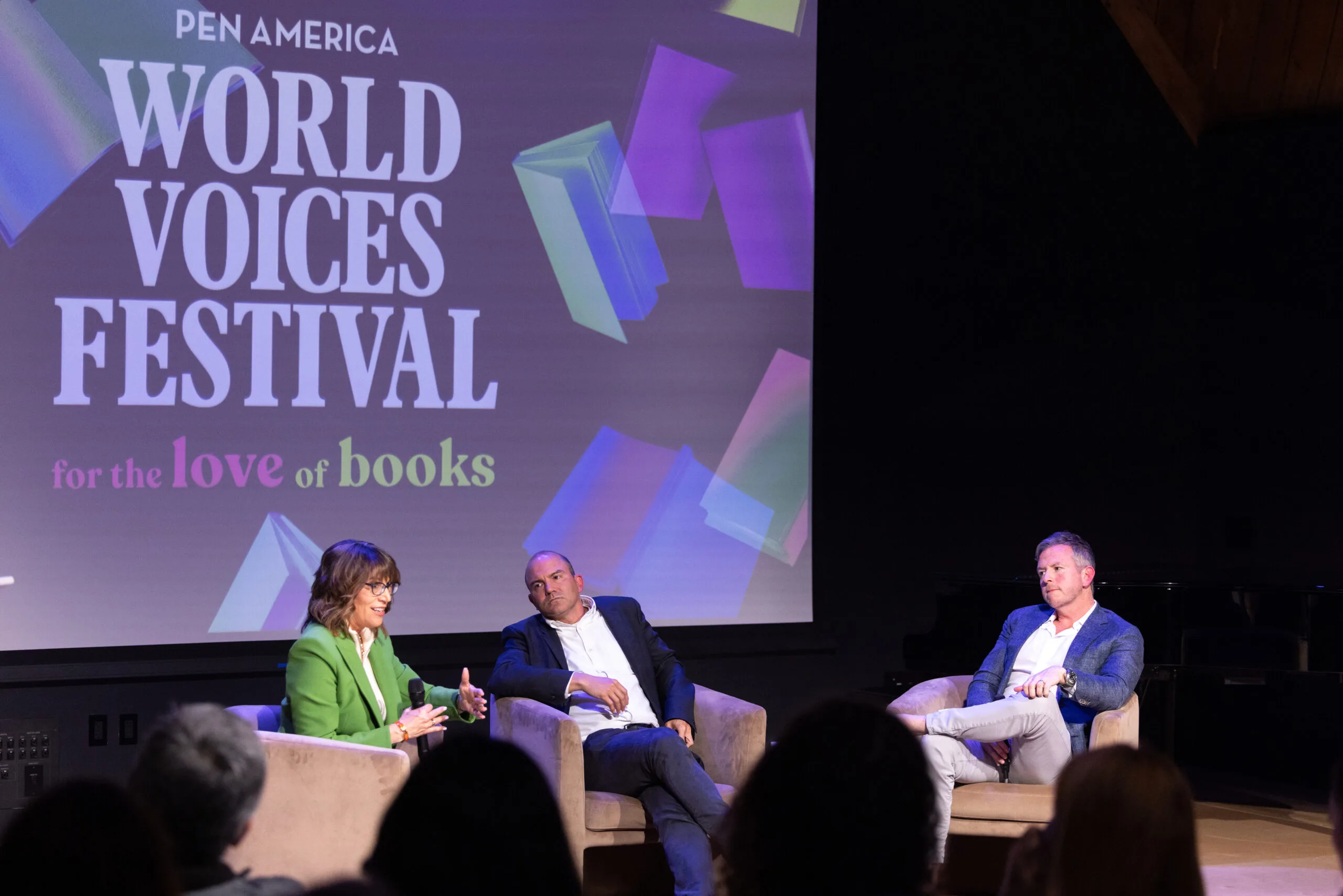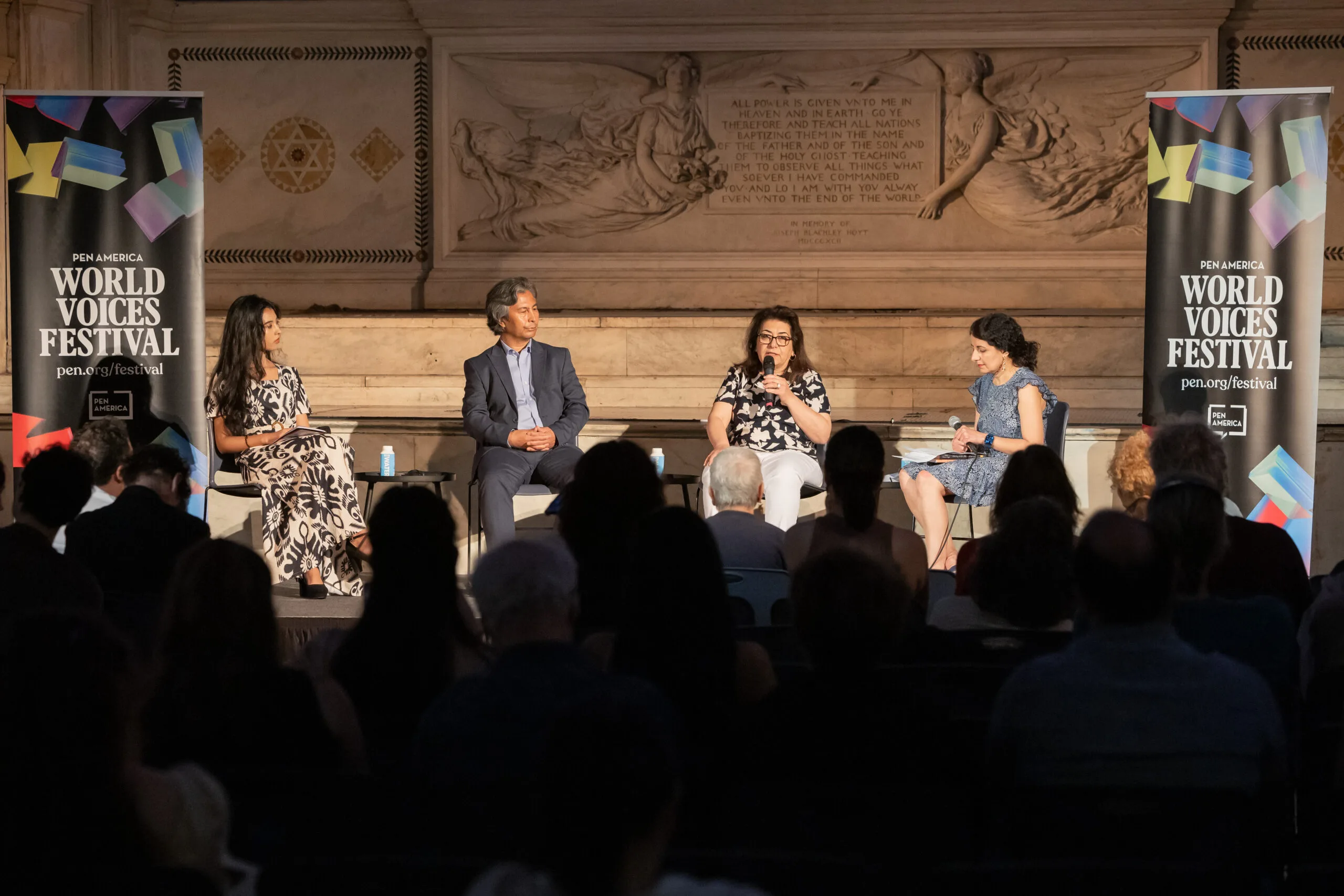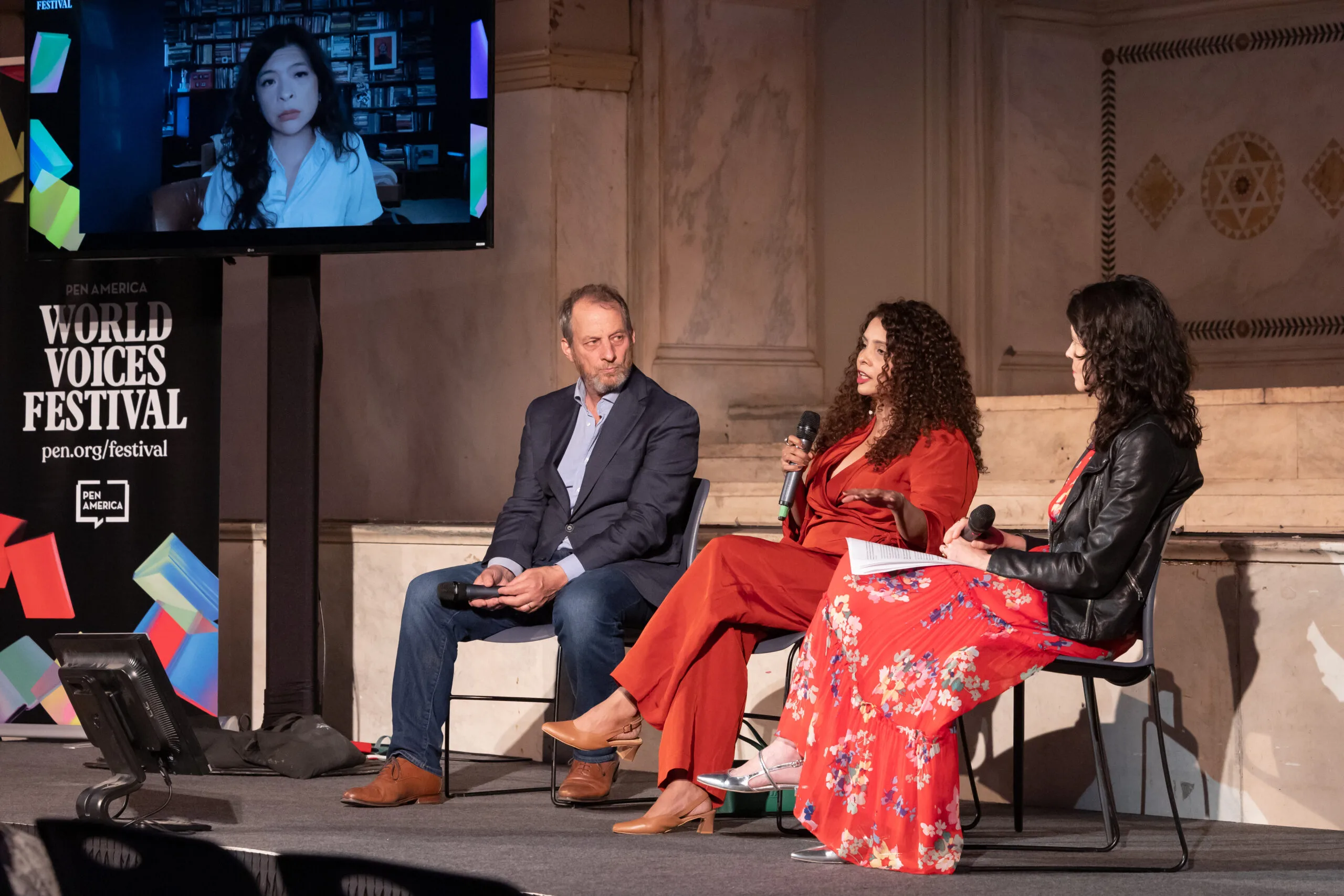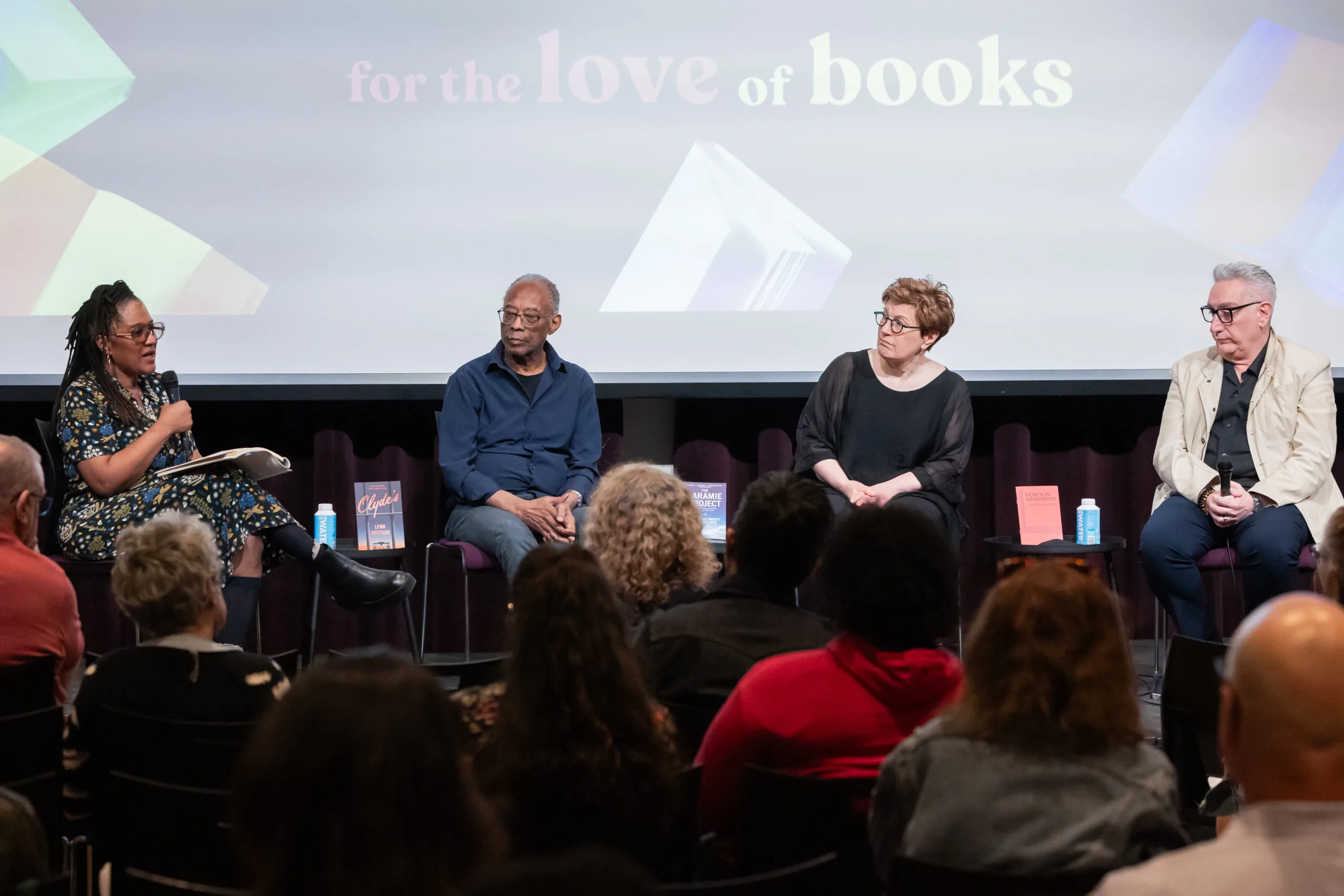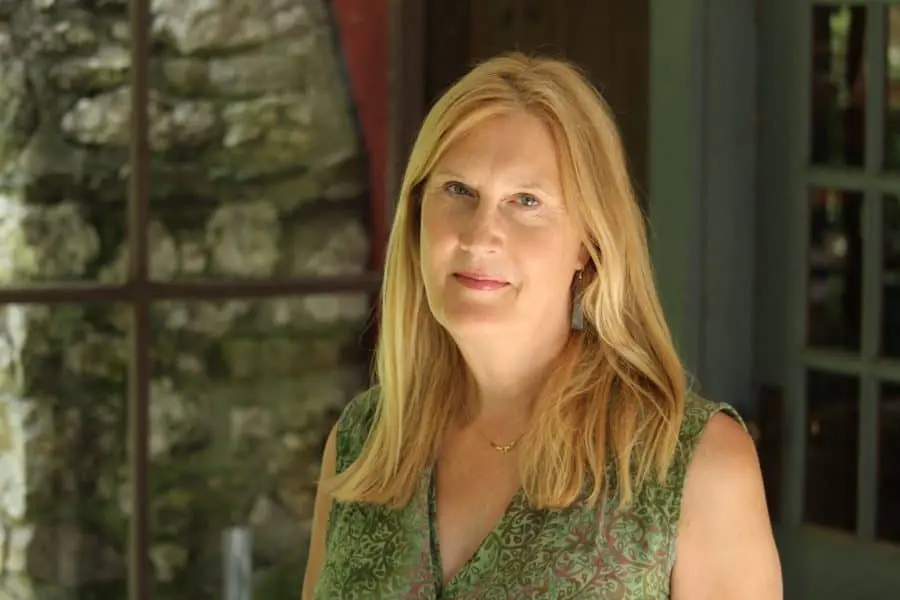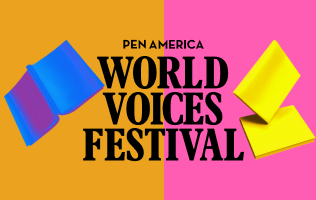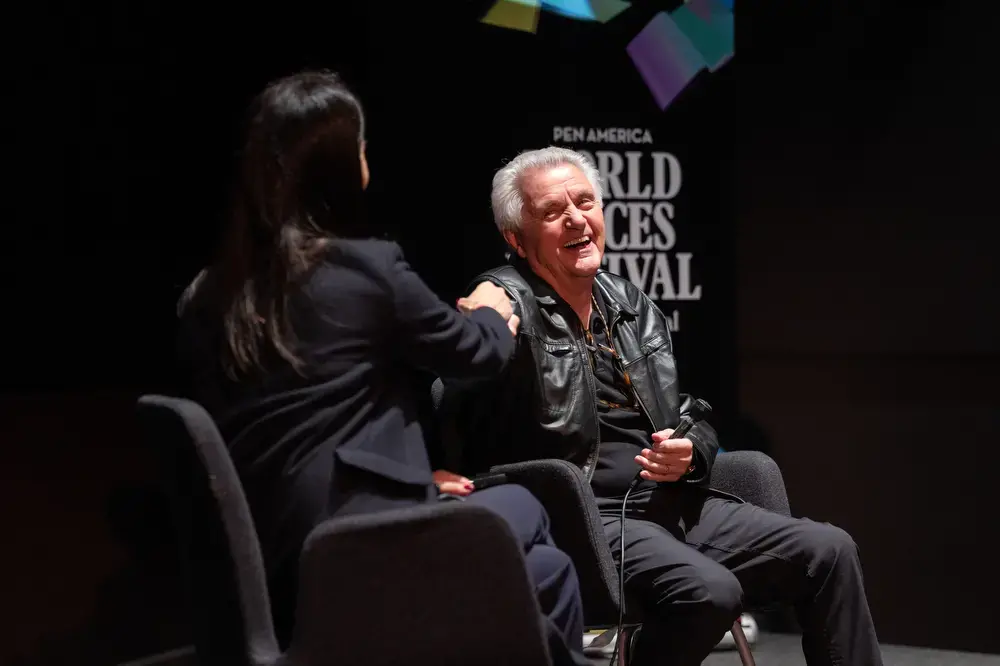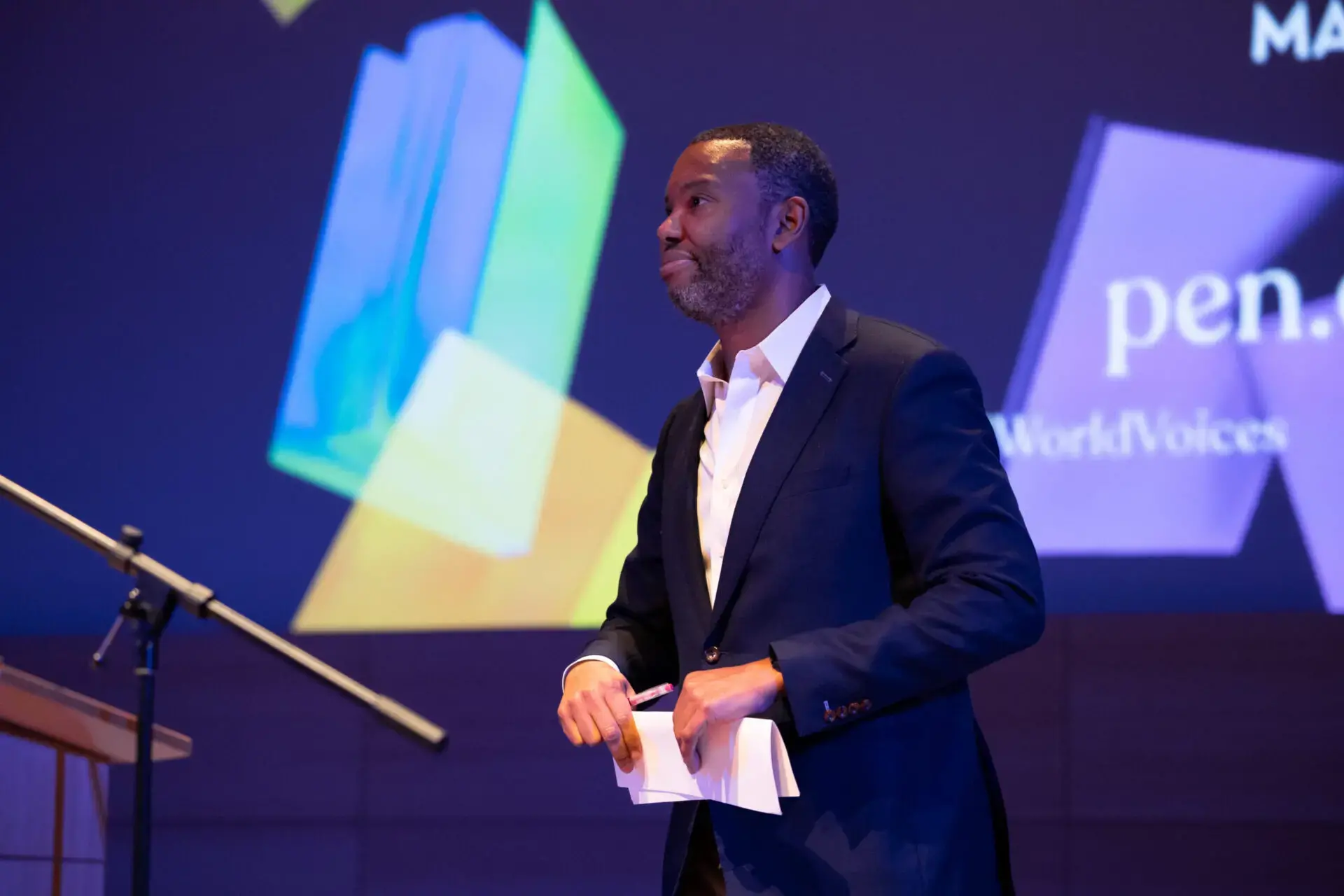
The new novels of Paul Tremblay (Horror Movie) and Stephen Graham Jones (The Buffalo Hunter Hunter) will make readers’ palms sweat, breath catch, and hearts race.
At the 2025 World Voices Festival session “Crafting Nightmares: The Art of Horror,” the two modern horror masters were joined by moderator Gabino Iglesias (House of Bone and Rain) for a hilarious and insightful discussion about subverting horror tropes, negotiating politics in the fantastic, and the enduring legacy of horror movies like Texas Chainsaw Massacre and Evil Dead II.
Why horror?
Tremblay: “The kid me still likes the weird possibility of the cool monster thing in horror…The adult part of me is definitely drawn to how horror gets at really sticky, difficult questions in interesting and uncompromising ways … Horror reveals the terrible truth that needs to be revealed. And I actually find that hopeful, because you recognize something’s wrong and that makes me feel less alone.”
Jones: “I write what I like to read, and horror is what I like to read … If I write a story about a werewolf and that story fails, then a lot of it goes through my fingers like sand afterwards. But I’m still holding a werewolf, because I saw a werewolf. And seeing a werewolf is GREAT.”
On how they chose the format of their novels
Tremblay’s novel intersperses traditional prose with excerpts from a fictional movie script, and Jones’ novel is told in an epistolary format
Tremblay: “I think there’s some part of my brain that, subconsciously, is always looking for, like, fun typographical stuff to do. And for me, the hard part is to make sure it’s just not a gimmick…I don’t have a lot of fun writing. I’m addicted to being done, like I feel like I created something. But writing the screenplay sections was one of the most fun things that I’ve done as a writer.”
Jones: “Epistolary was a way to, kind of, bulletproof myself against copy-edits. Because when you write epistolary and the copy editor comes back and says, ‘That’s not how you spell that, we need a comma here,’ I’m like ‘That’s the character!’”
Horror reveals the terrible truth that needs to be revealed. And I actually find that hopeful, because you recognize something’s wrong and that makes me feel less alone.
On the moniker “literary horror”
Jones: “I prefer the use of the term ‘literary’ not as a genre designation but as an intensifier, as a modifier…And I do think that different genres—you can have literary science fiction, literary erotica, literary everything—but the way we use [‘literary’] in the world insults the rest of the class.”
Tremblay: “When I’m writing I’m definitely not thinking about genre…I want it to irritate literary people, but I also want it to irritate some of the horror readers, of the kind that would not dare read something that would be considered ‘literary.’”
On using and subverting tropes
Jones: “I can only invest intellectually and emotionally in a creature, a monster, a person, if I can 100% believe in them, and I can only believe in them if they make sense to me culturally and biologically…For me to believe in a vampire for Buffalo Hunter Hunter, I had to pare it down to what I thought was essential, something I can believe in.”
On horror becoming mainstream
Jones: “It’s a little bit scary, because I think we’ve gotten a lot of our identity from solidarity, from standing at the fence and looking in. I’m concerned that horror might change; I’m excited that horror might change, because if things don’t change, they die.”
Tremblay: “Horror’s job should be to make people uncomfortable and poke and prod at the boundaries of mainstream culture, so what happens if it becomes mainstream culture? The horror that least interests me is more mainstream. I like the stuff that really makes me feel uncomfortable…I think horror should be challenging.”
I’m concerned that horror might change; I’m excited that horror might change, because if things don’t change, they die.
On navigating politics as horror writers
Jones: “You know, if you’re making the right people mad, you’re doing good work…In each scene, each sentence and each word choice, I find a way to grind that ax, you know, to get it sharper.”
Iglesias: “Every time I get hate mail, I write down the thing that they hated. And so when I finish a book, I go through the list and I’m like ‘I don’t have enough of this. I’ll add a little bit more, make them REAL angry.’”
On building and giving back to the horror community
Jones: “You knock on the door of the House of Fiction for a long time. You’re out there in the cold. Finally, you get admitted, and I think it’s incumbent upon you to then hold that door open for other people so that they can get in, too.”
Tremblay: “I think some of it is selfish. Like, I want more of the books that I enjoy to be published.”
Want more?
Check out the panelists’ and moderators’ books:
- Horror Movie by Paul Tremblay
- The Buffalo Hunter Hunter by Stephen Graham Jones
- House of Bone and Rain by Gabino Iglesias

